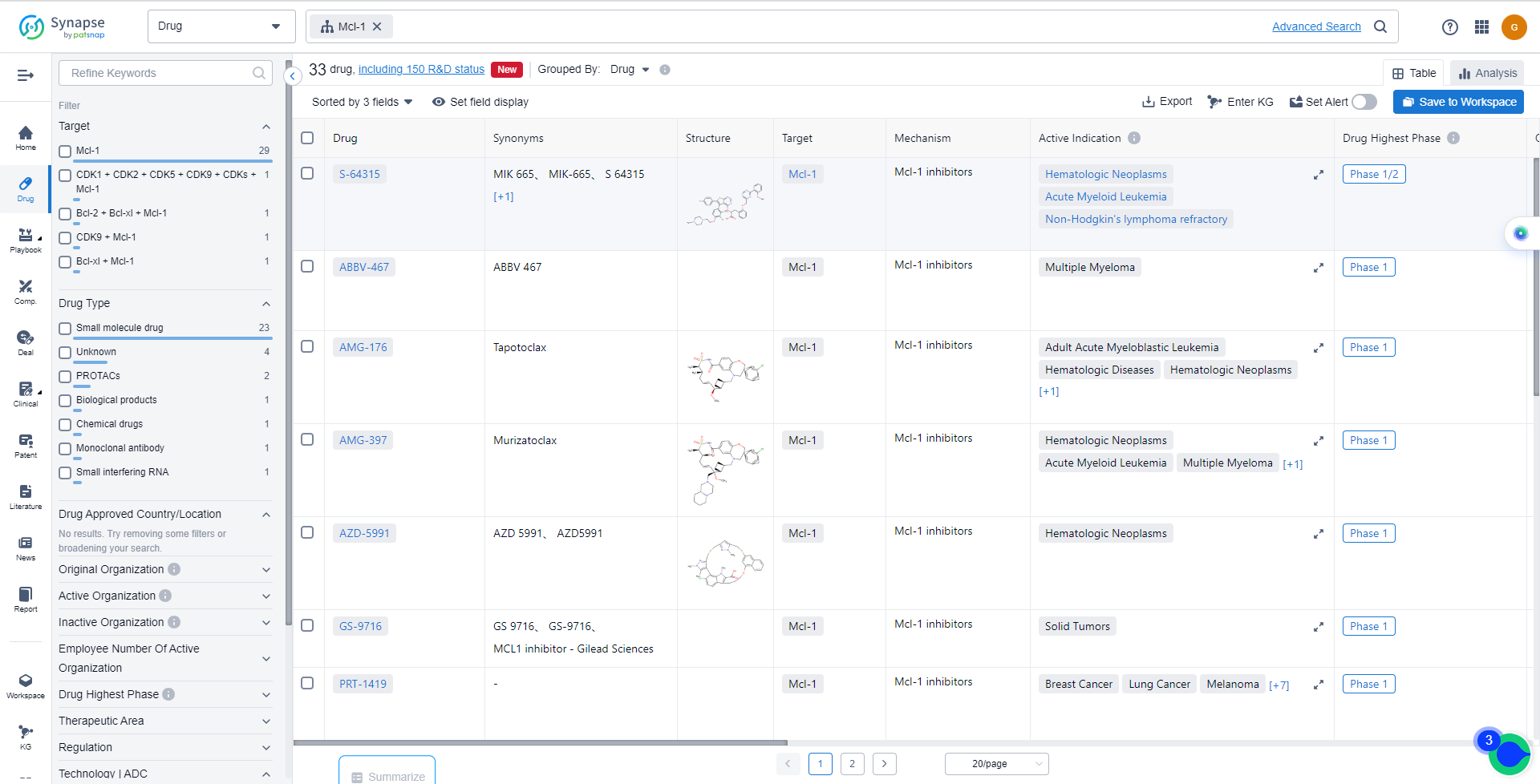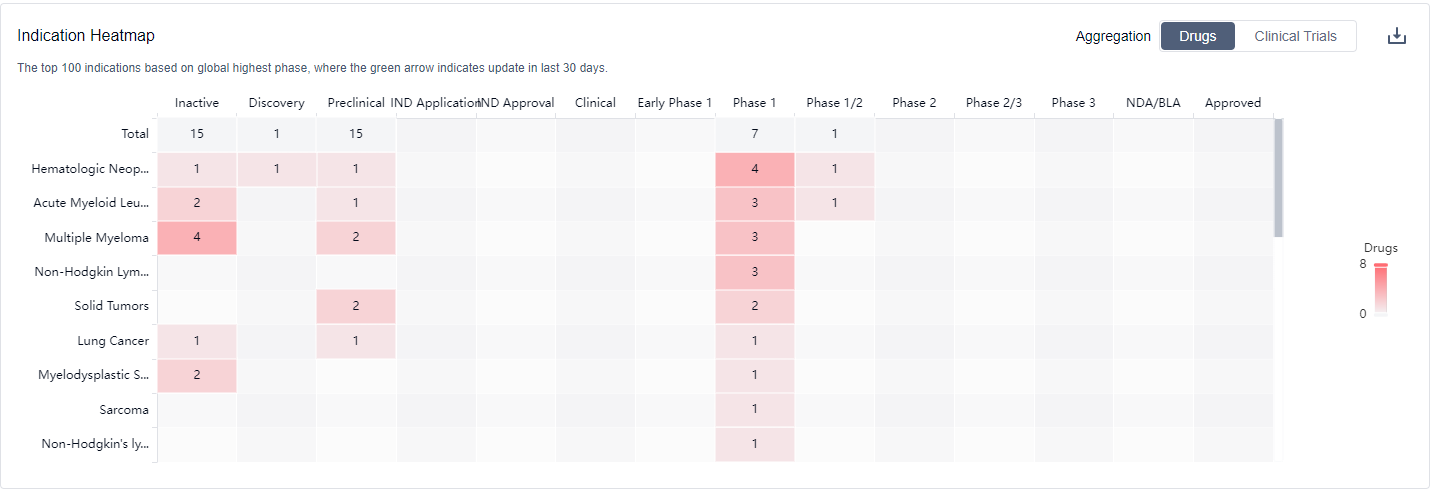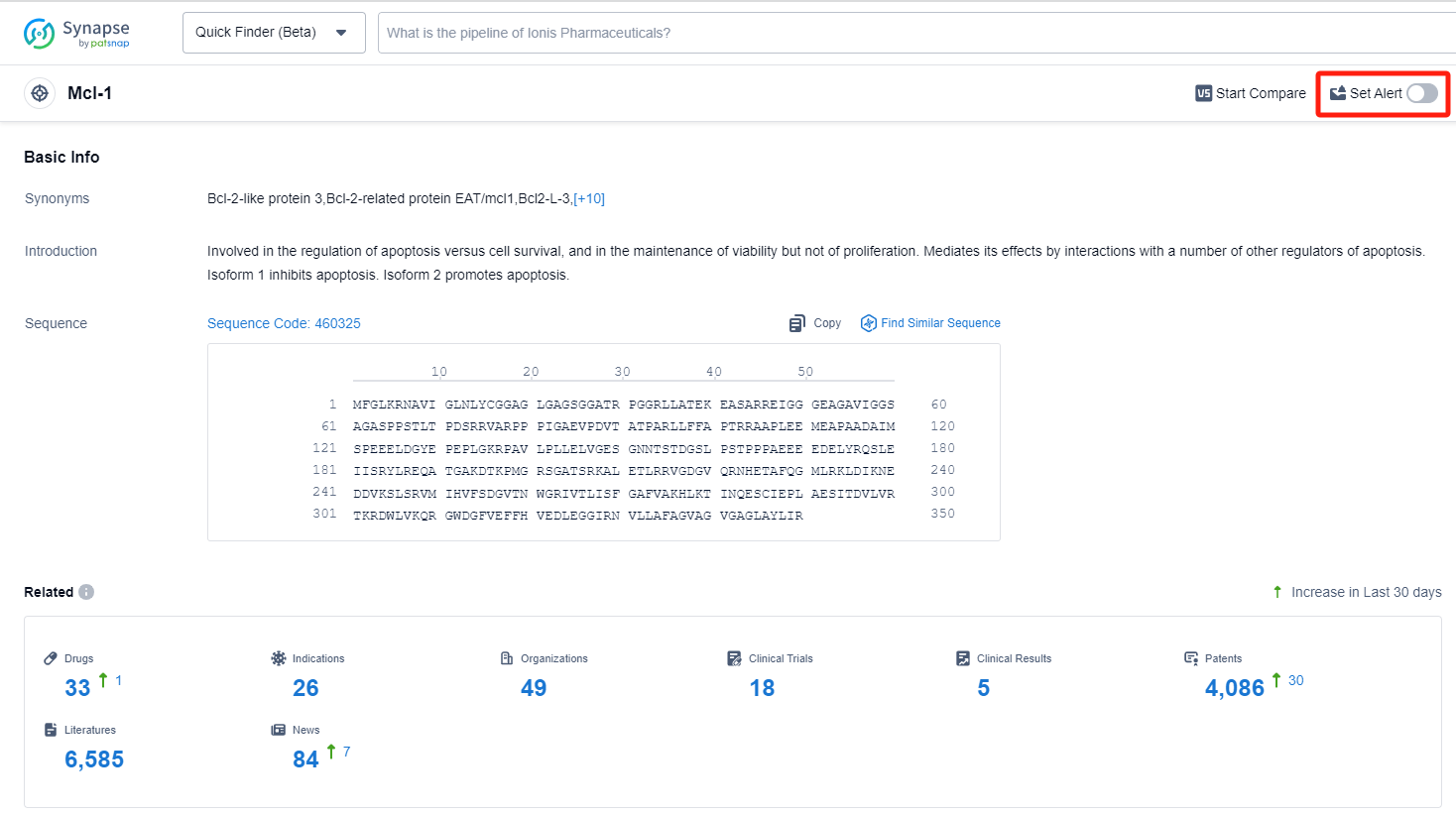Understanding Mcl-1 Inhibitors and Methods to Keep Abreast of Their Recent Developments
Mcl-1, also known as myeloid cell leukemia-1, is a protein that plays a crucial role in regulating cell survival and apoptosis (programmed cell death) in the human body. It belongs to the Bcl-2 family of proteins, which are involved in maintaining the balance between cell survival and death. Mcl-1 is primarily found in various tissues, including the immune system, and is particularly important for the survival of immune cells. Dysregulation of Mcl-1 expression or function has been implicated in various diseases, including cancer, where it can promote tumor cell survival and resistance to chemotherapy. Therefore, targeting Mcl-1 has emerged as a potential therapeutic strategy in the pharmaceutical industry for the treatment of cancer and other diseases.
Overexpression of MCL-1 is common in many types of tumors and is closely related to tumorigenesis, poor prognosis, and drug resistance. MCL-1 is located in mitochondria, and its core role in regulating the mitochondrial apoptosis pathway makes it an attractive target for cancer treatment. Therefore, Mcl-1 inhibitors are considered an attractive method for treating recurrent or refractory malignant tumors. Although the development of MCL-1 inhibitors has made significant progress, there are still some problems in the development process: firstly, most reported Mcl-1 inhibitors have poor antitumor activity due to poor physicochemical properties of the drug, low membrane permeability, and high serum protein binding rate; secondly, some Mcl-1 inhibitors that have entered the clinical trial stage (AZD5991, AMG-176, etc.) have caused the clinical trial to be terminated due to side effects (NCT03218683, NCT03797261).
The analysis of the target Mcl-1 reveals a competitive landscape with multiple companies actively developing drugs in different stages. Novartis AG, Les Laboratoires Servier SAS, Servier Group, Ligand Pharmaceuticals, Inc., Amgen, Inc., AbbVie, Inc., and BeiGene Ltd. are among the companies growing fastest under this target. The approved indications for drugs targeting Mcl-1 cover a wide range of hematologic and solid tumors, indicating the potential of Mcl-1 as a therapeutic target for various cancers. Small molecule drugs are progressing most rapidly, with the presence of biosimilars indicating intense competition. The United States, European Union, and China are the countries/locations developing fastest under the target Mcl-1, with notable progress in other countries as well. Overall, the target Mcl-1 presents a promising opportunity for the development of innovative drugs in the pharmaceutical industry.
How do they work?
Mcl-1 inhibitors are a type of drugs that specifically target and inhibit the activity of the protein called Mcl-1. Mcl-1 is a member of the Bcl-2 family of proteins, which play a crucial role in regulating programmed cell death, also known as apoptosis.
From a biomedical perspective, Mcl-1 inhibitors are of great interest in cancer research and therapy. Mcl-1 is often overexpressed in various types of cancer cells, leading to increased cell survival and resistance to chemotherapy or other treatments. By inhibiting Mcl-1, these inhibitors can promote cancer cell death and enhance the effectiveness of anticancer therapies.
Mcl-1 inhibitors can be designed as small molecules or as biologics such as antibodies. They work by binding to Mcl-1 and preventing its interaction with other proteins involved in cell survival pathways. This disruption of Mcl-1 function triggers apoptosis in cancer cells, ultimately leading to their destruction.
The development of Mcl-1 inhibitors holds promise for the treatment of cancers where Mcl-1 plays a significant role in promoting tumor cell survival. Clinical trials are underway to evaluate the safety and efficacy of Mcl-1 inhibitors as potential cancer therapeutics.
List of Mcl-1 Inhibitors
The currently marketed Mcl-1 inhibitors include:
For more information, please click on the image below.
What are Mcl-1 inhibitors used for?
Mcl-1 inhibitors have shown promise in various cancer types, including hematological malignancies such as leukemia and lymphoma, as well as solid tumors like lung, breast, and colorectal cancers. For more information, please click on the image below to log in and search.
How to obtain the latest development progress of Mcl-1 inhibitors?
In the Synapse database, you can keep abreast of the latest research and development advances of Mcl-1 inhibitors anywhere and anytime, daily or weekly, through the "Set Alert" function. Click on the image below to embark on a brand new journey of drug discovery!








